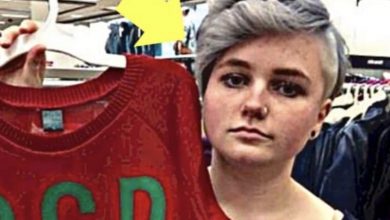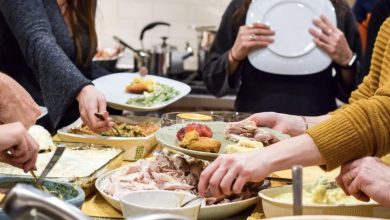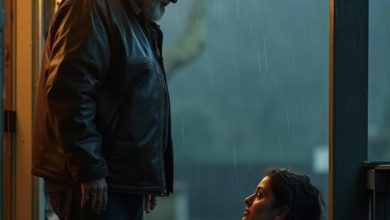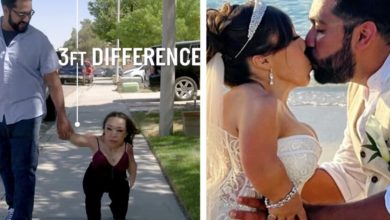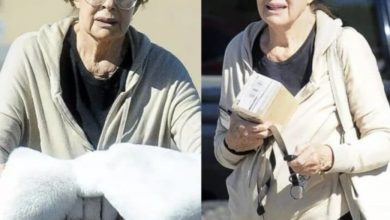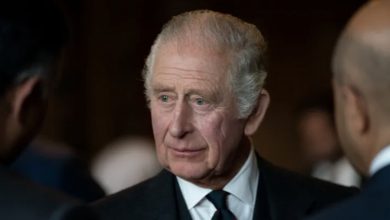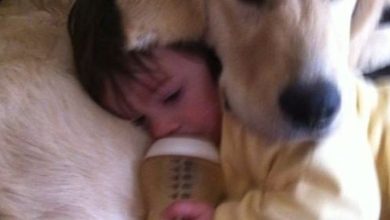She Said I’d Never Survive Without Her But My Grandma’s Final Gift Proved Her Wrong
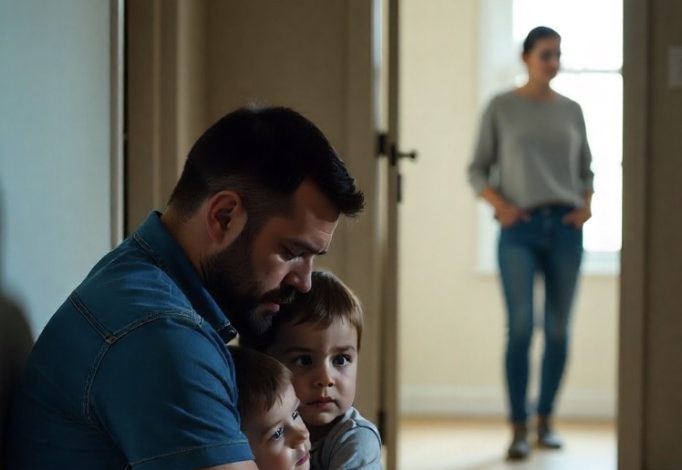
Under the flickering bridge light, I sat behind the wheel of a borrowed box truck, the Carolina night breathing cold through the cracks in the windshield. Steam curled up from the street drains, ghostly and slow, as if the whole city were sighing with me. I didn’t move. My hands rested on the steering wheel long after the engine clicked its last bit of warmth away. The air smelled faintly of gasoline and rain. I was thirty-six years old, sitting in a rusted truck, with nothing but a few duffel bags in the back and three sleeping kids depending on me.
My name is Nathaniel Lott, but people just call me Nate. Less than a year ago, I had a mortgage, a decent salary, a grill on the deck, and three bikes in the garage. I had a wife who smiled at me across the dinner table and kids who still believed that grown-ups always had answers. Now, that same wife had walked out the door, her final words cutting deeper than any insult. “You won’t survive without me,” she’d said. And just like that, she was gone.
At first, I thought she was bluffing. But when she didn’t come back the next morning, or the next week, and the eviction notice hit the front door, I realized she meant every word. She left with the house, the savings, and whatever dignity I had left. All I had were the kids — Callen, Maren, and Boon — and a job that disappeared faster than the ink could dry on the divorce papers.
I’d spent years managing Ridgeway Supermarket, working my way up from a stock boy to store manager. I thought loyalty still meant something. But Heather — my ex-wife — had other plans. She got close to my district manager, Marcus Hale, and before I knew it, whispers about my “declining performance” and “leadership concerns” made their way to corporate. After nine spotless years, I was escorted out with a folder and a handshake.
Two weeks later, she and Marcus showed up together on Facebook, smiling with wine glasses in hand. The betrayal wasn’t just personal; it was surgical. They’d cut me out of the life I built and left me with nothing but debts, memories, and three kids who didn’t understand why their mother wasn’t coming back.
At first, we crashed in the back of a closed-down mattress store. I told the kids it was an “adventure,” that we were camping. The floor was cold concrete, but I laid out old quilts and made sure they felt safe. When the landlord found out, we moved again — this time to a friend’s warehouse, where I set up a cot between stacks of cardboard boxes. I picked up a night job at the freight terminal, cleaning and supervising deliveries, trying to stay invisible.
The freight yard became my world — the echo of forklifts, the hum of engines, the smell of oil. I’d walk the aisles with a cup of bitter coffee and a clipboard, logging broken pallets and miscounted crates. The work was heavy, but it was honest. I didn’t have the luxury of pride anymore.
During the day, I was Dad — the cook, the chauffeur, the homework helper. I tried to make the kids laugh, even when my heart wasn’t in it. When they slept, I’d sit by the window and stare out at the traffic, wondering how everything had gone so wrong so fast.
Then came Nomi Hart. She ran the neighborhood community center, a bright spot in a dark season. She didn’t pity me — and that was exactly why I trusted her. She offered meals, homework help, and structure. The kids adored her. Slowly, she gave me something I hadn’t had in months: stability.
Through her help, we found a small loft above an engine shop. It wasn’t much — two rooms, peeling paint, and a heater that clanged like an angry ghost — but it was ours. I fixed what I could, patched the walls, and locked the door each night, telling myself we were starting over.
We lived on duct tape and determination. The kids learned to adapt. Callen helped with repairs. Maren kept track of our expenses in a notebook. Boon collected books from the donation bin and read them aloud in bed. They didn’t complain once.
Then one night, everything changed.
I was at the terminal when the night guard tapped on my window. “Someone’s here for you,” he said. His face looked spooked.
A tall woman in a slate-gray coat walked in like she owned the place. “I’m looking for Nathaniel Lott,” she said, her tone clipped.
“That’s me,” I replied, wiping grease from my hands.
“I’m Celeste Montro,” she said, sliding a business card across the table. “Attorney at law. Executor of Eileen Lott’s estate.”
For a second, I just stared. “Eileen?” I repeated. “My grandmother?”
Celeste nodded. “I’m sorry to tell you she passed away last week. She left something for you — and your children.”
I didn’t understand until she said the next part. “The trust your grandmother preserved through her father’s estate has matured. Its current value is fifty-eight-point-seven million dollars.”
I laughed out loud. “That’s impossible.”
Celeste didn’t flinch. She handed me official papers — audit records, bank statements, legal seals. “It’s real,” she said simply. “But there’s a condition. For ninety days, you can’t touch a single dollar. It’s a test your grandmother designed herself. She called it ‘the measure of love.’ You’ll have to live exactly as you have been — earning your own way — until the trust is released.”
I felt dizzy. I didn’t know if I should laugh or cry. “So, we’re being tested again?”
“Yes,” she said softly. “But your grandmother believed you’d pass.”
When I got home, I told the kids everything. “It means we’re safe,” I said. “But it also means we can’t rely on the money yet. We have to prove we can do this.”
Callen listened in silence. Maren took notes, like she always did. Boon asked if Grandma Eileen had said anything to him specifically. That’s when I remembered the envelope Celeste had given me.
Inside was a folded letter, written in Eileen’s familiar, shaky handwriting. The first line stopped me cold:
“Wealth without love is poverty. Love builds houses money can’t.”
That night, Boon taped the letter to the wall above his bunk. “Grandma’s watching,” he said.
I didn’t sleep. My phone buzzed constantly the next morning. A local reporter somehow got wind of the trust. By noon, two news vans were parked outside the shop. Headlines started to pop up online: Riverfront Father’s Kids to Inherit Millions.
Heather called for the first time in months. “We should coordinate a statement,” she said coldly. Marcus’s name appeared in the group chat seconds later.
That evening, Child Protective Services came to inspect our home. The caseworker, Shayla Kern, looked around carefully, taking notes. When she saw Eileen’s letter taped to the wall, she smiled. “You’ve got a strong foundation here,” she said. “Keep it that way.”
The real battle started when Heather’s uncle filed a petition to take custody of the kids “for financial safety.” Marcus’s lawyer joined him, talking about “joint guardianship.” They wanted control of the trust before the ninety days were up.
The case hit the courtroom within two weeks. Reporters lined the back row, their cameras ready. Judge Hullbrook, a woman known for her no-nonsense style, presided over the case. Celeste stood beside me, cool and composed.
Heather’s lawyer spoke first, using words like “instability” and “financial oversight.” Then came Shayla from CPS, who read her report aloud. “The children are thriving,” she said. “They attend school daily, participate in community programs, and maintain a stable home environment. Mr. Lott works full-time and provides consistent care.”
Celeste handed the judge a binder thicker than a phone book. “These are the financial records,” she said. “Every expense logged. Every receipt documented.”
Then came the moment that broke me. Maren took the stand, clutching her notebook. “Grandma said money isn’t what matters,” she said softly. “It’s love. So we followed her rule.”
Boon showed the letter in its plastic sleeve. “This was in her book,” he said. “She wrote it for us.”
Finally, Callen stood tall and said the words I’ll never forget. “We didn’t choose the money,” he said. “We chose Dad.”
The courtroom went silent. Even the judge looked moved. When she finally spoke, her voice carried warmth under the authority. “Custody will remain with Mr. Lott,” she said. “The trust will be handled by independent trustees. Case closed.”
Outside, reporters shouted questions. I ignored them. Boon tugged on my sleeve. “Dad, does this mean we can get a dog now?”
That night, I drove us back to the riverfront. The building where we used to struggle was still standing — worn but solid. “What if we bought this block?” I said. “Fixed it up. Made it a place for families like us.”
The kids stared, then smiled. “You mean everyone, not just us?” Maren asked.
“Yeah,” I said. “Everyone.”
And that’s how the Lott Block Trust was born — a project to restore our neighborhood, to give others what we once needed most: a home, a chance, and hope.
We didn’t move into a mansion. We stayed in the loft. I still worked nights. The money went into the foundation, not our pockets. We fixed broken doors, painted walls, and built a playground behind the center.
When the building reopened, the block threw a celebration. No tuxedos or speeches — just barbecue, music, and laughter. The judge even showed up, smiling as she toured the new apartments. “This,” she said quietly, “is justice done right.”
Callen gave a short speech, thanking every volunteer. Maren shared a flyer she’d made showing how housing stability saves lives. Boon pointed to Eileen’s framed letter on the wall. “That’s from our great-grandma,” he said proudly. “She said love builds houses money can’t.”
Later that night, after everyone left, I stood outside with Nomi under the string lights. “We did it,” she said.
“No,” I said, looking up at the glowing windows. “They did it.”
Then I took her hand. “When things calm down,” I said, “I want us to build something else. Together.”
Her smile was quiet but sure. “Let’s make a plan,” she said.
As I climbed the fire escape later, the city spread out below — alive, breathing, whole. The test was over, but Eileen’s words stayed with me. The test is the door. Family is the key.
We had passed — not because of money, but because we remembered what mattered. We built something stronger than wealth.
We built home.
ChatGPT can make

